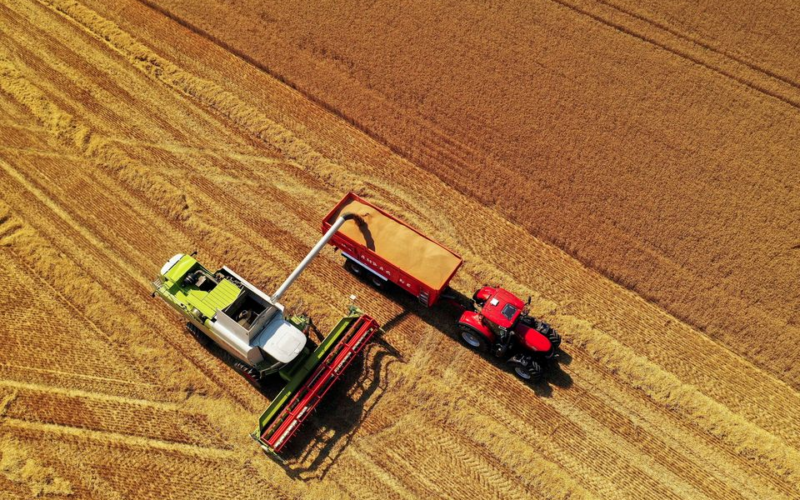French wheat farmers are facing an unprecedented challenge this year, with the country’s wheat harvest projected to be one of the worst in the last 40 years. As the European Union’s leading producer and exporter of soft wheat, France’s anticipated production drop of nearly 25 percent compared to 2023 is alarming, and farming unions are urgently calling on the government to provide financial assistance to help farmers navigate this difficult period.
The significant decline in wheat production, expected to fall to 26.3 million tons, is largely attributed to unfavorable weather conditions, including a wet winter and insufficient sunlight during the spring and early summer. This has left wheat farmers struggling to salvage their crops, with many facing substantial financial losses.
Soft wheat, a critical ingredient in the production of bread and cakes, including the iconic French baguette, is at the heart of this crisis. While there are concerns that the reduced wheat supply could drive up the cost of baguettes, which has already seen price increases due to rising energy costs, experts like Thierry Pouch, chief economist of the French Chamber of Agriculture, suggest that the impact on consumers may not be immediate. However, the long-term effects of such a poor harvest could still pose a threat to both farmers and consumers.
For French wheat producers, the smaller harvests are a severe blow, compounding a winter already marked by social unrest and economic pressures. Farming unions, including the influential FNSEA, are now urging the government to step in with financial support to help farmers weather this storm. Without this assistance, many farmers could face crippling financial losses, with some estimates suggesting that the average wheat producer could lose between €30,000 and €50,000 due to the poor harvest.
Earlier this year, the French government made concessions to farmers after a series of protests and blockades against bureaucratic hurdles and the reduction of agricultural aid programs. However, these measures now seem inadequate in light of the current crisis. Farmers are once again calling on the government to recognize the vital role they play in the nation’s food supply and economy and to provide the necessary support to ensure their survival through this challenging year.
France’s wheat farmers have long been the backbone of the country’s agricultural sector, and their continued success is crucial not only for the economy but for maintaining the country’s cultural heritage, including the beloved baguette. It is essential that the government listens to the farmers’ calls for help and provides the assistance needed to ensure that France’s wheat production can recover and thrive in the years to come.








